Ukraine’s troops pull back from key eastern town as Putin’s forces advance
The town was a bastion of resistance for over two years since Vladimir Putin’s invasion in February 2022
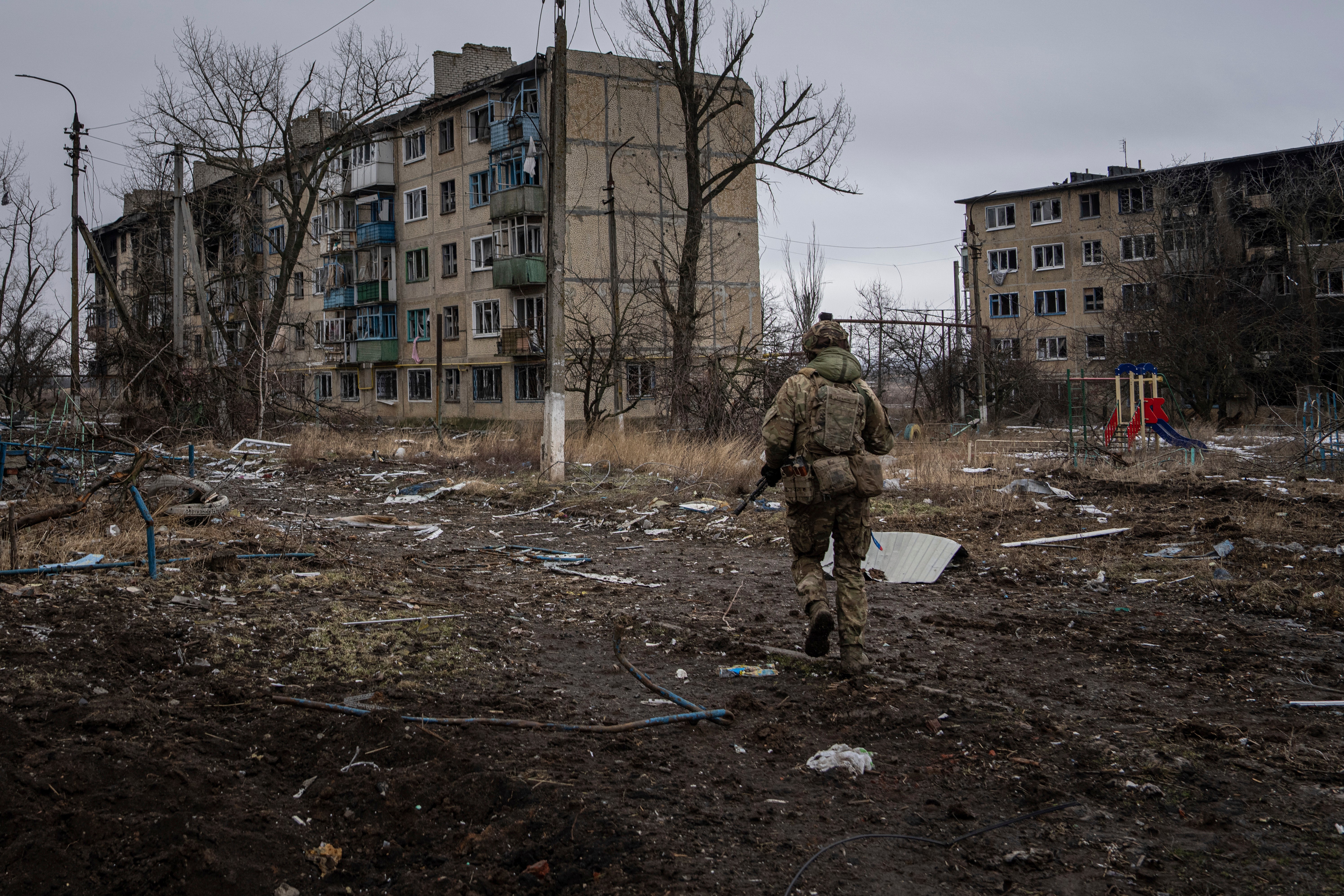
After more than two years of intense fighting, Kyiv’s forces have withdrawn from a key town in eastern Ukraine after Russian troops advanced on the area.
Ukraine’s eastern military command pulled back from Vuhledar, Donetsk, as Vladimir Putin’s troops claimed it had seized the area.
The town, which had a population of 14,000 before the war, was a bastion of resistance that saw off Russian attacks ever since Moscow invaded Ukraine in February 2022.
“Senior command granted permission to carry out a maneuver to withdraw units from Vuhledar in order to preserve personnel and military equipment, and take positions for further actions,” Kyiv’s military said.
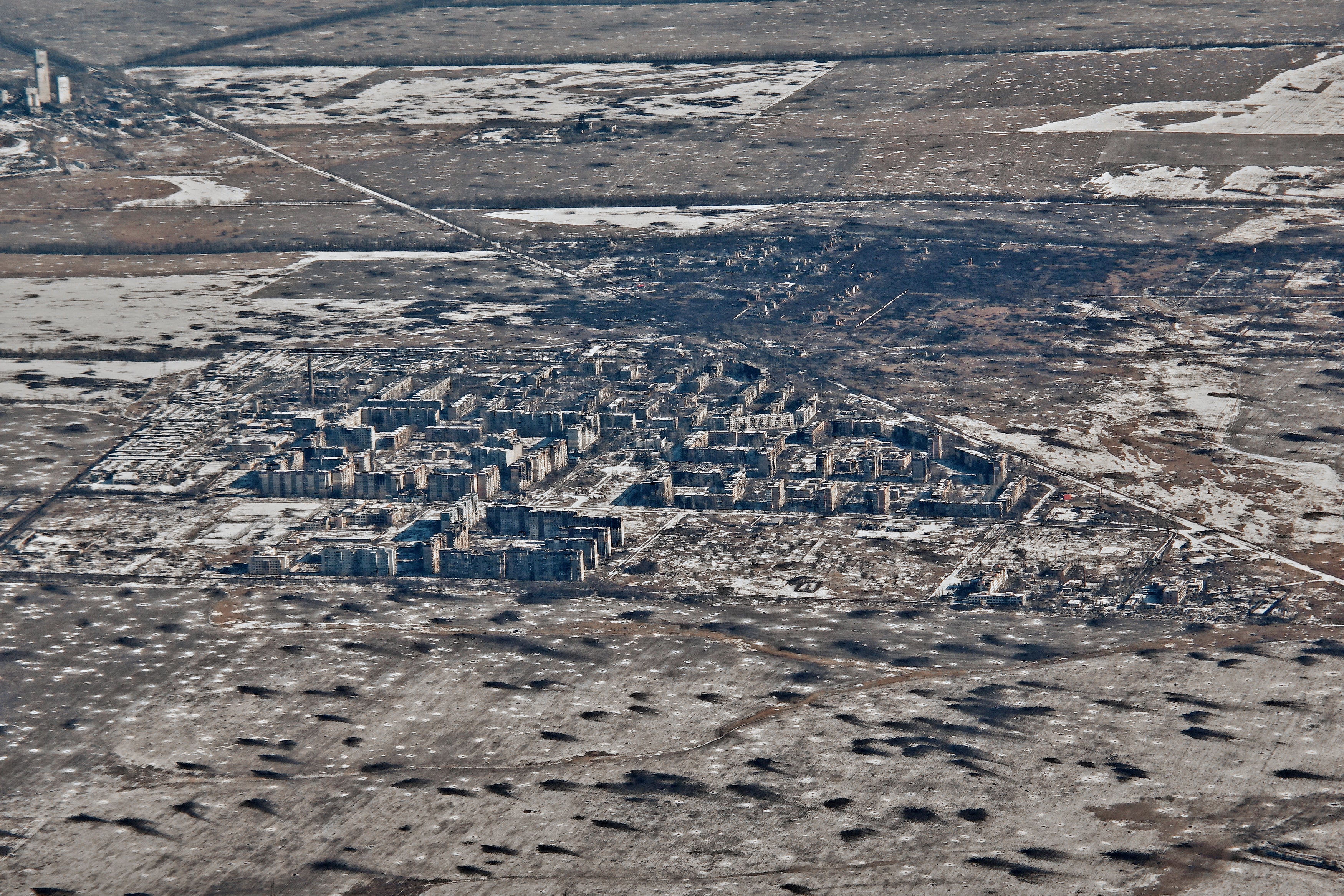
Russian telegram channels published videos of soldiers waving the Russian tricolour flag over destroyed buildings.
The town finally fell when the last of Ukraine’s 72nd Mechanised Brigade, a unit famous for its resistance, left late on Tuesday, local media reported.
Control of the area, which lies at the intersection of the eastern and southern battlefields, is significant because it will ease Russia’s advance as it tries to pierce deeper behind the Ukrainian defensive lines.
Putin has said his primary goal is to take the whole of the Donbas region – the provinces of Donetsk and Luhansk – in southeastern Ukraine.
His forces control about 80 per cent of this area, a heavy industry hub where conflict began in 2014 after Moscow supported pro-Russian separatist forces after pro-Russian president Viktor Yanukovych was toppled.
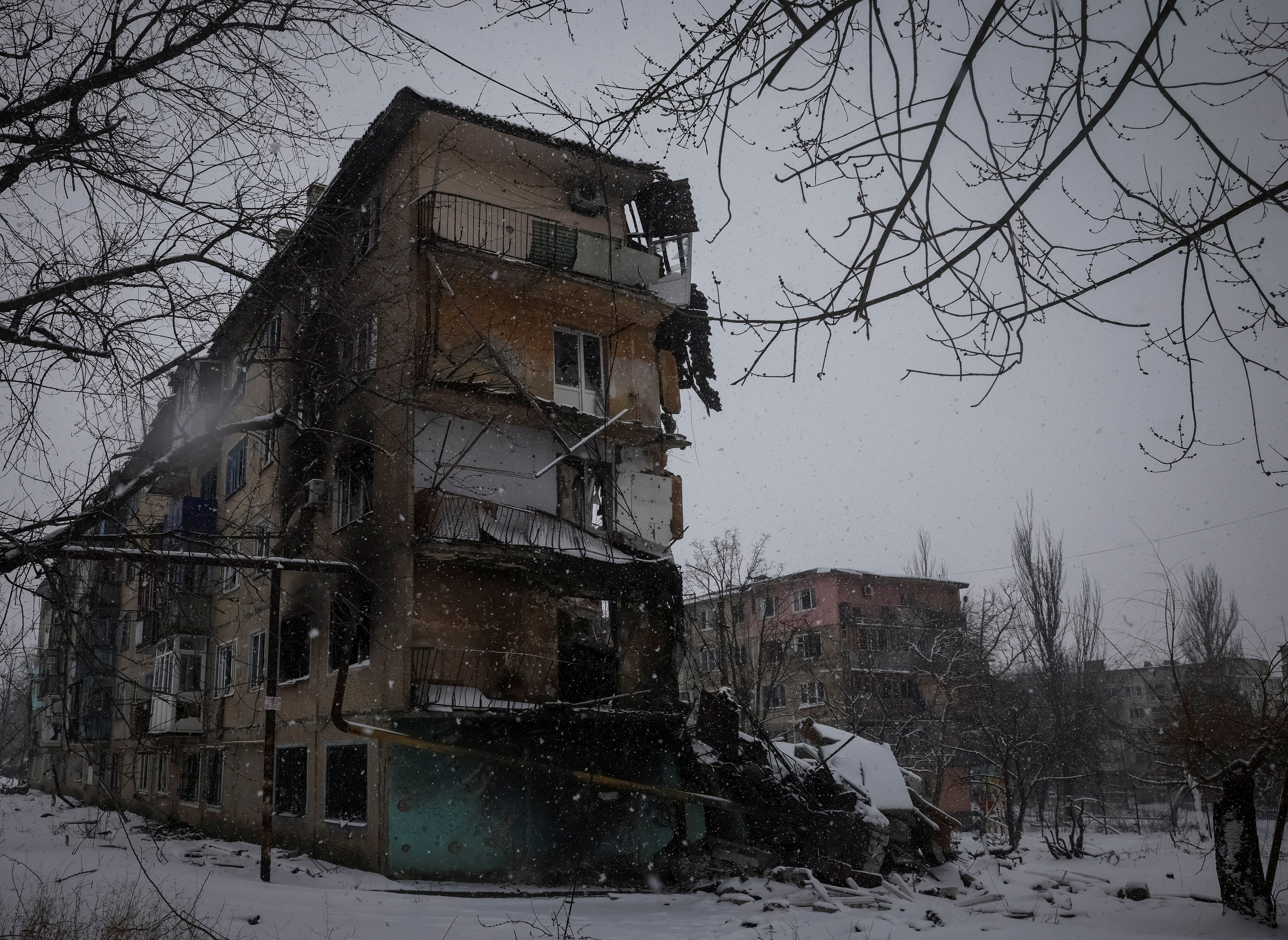
Capturing Vuhledar is part of Moscow’s plan to seize control of Pokrovsk, a strategic logistics hub just 20 miles (30km) north, according to analysts.
The next step for Russian forces would be to drive Ukrainian forces out of the nearby city of Kurakhove, which could lead to Pokrovsk, Ivan Tymochko, chair of the Council of Reservists of Ukraine’s ground forces, said.
“This line is interconnected and the enemy will not be able to enter Pokrovsk and come close to Pokrovsk unless it can drive our troops out of Kurakhove,” Mr Tymochko said.
Meanwhile, Ukraine destroyed 11 of 32 Russian drones launched overnight, Kyiv’s air force said on Wednesday.
Another four drones left Ukrainian airspace in the direction of Russia and 10 others were lost in northern and central Ukraine, it added.
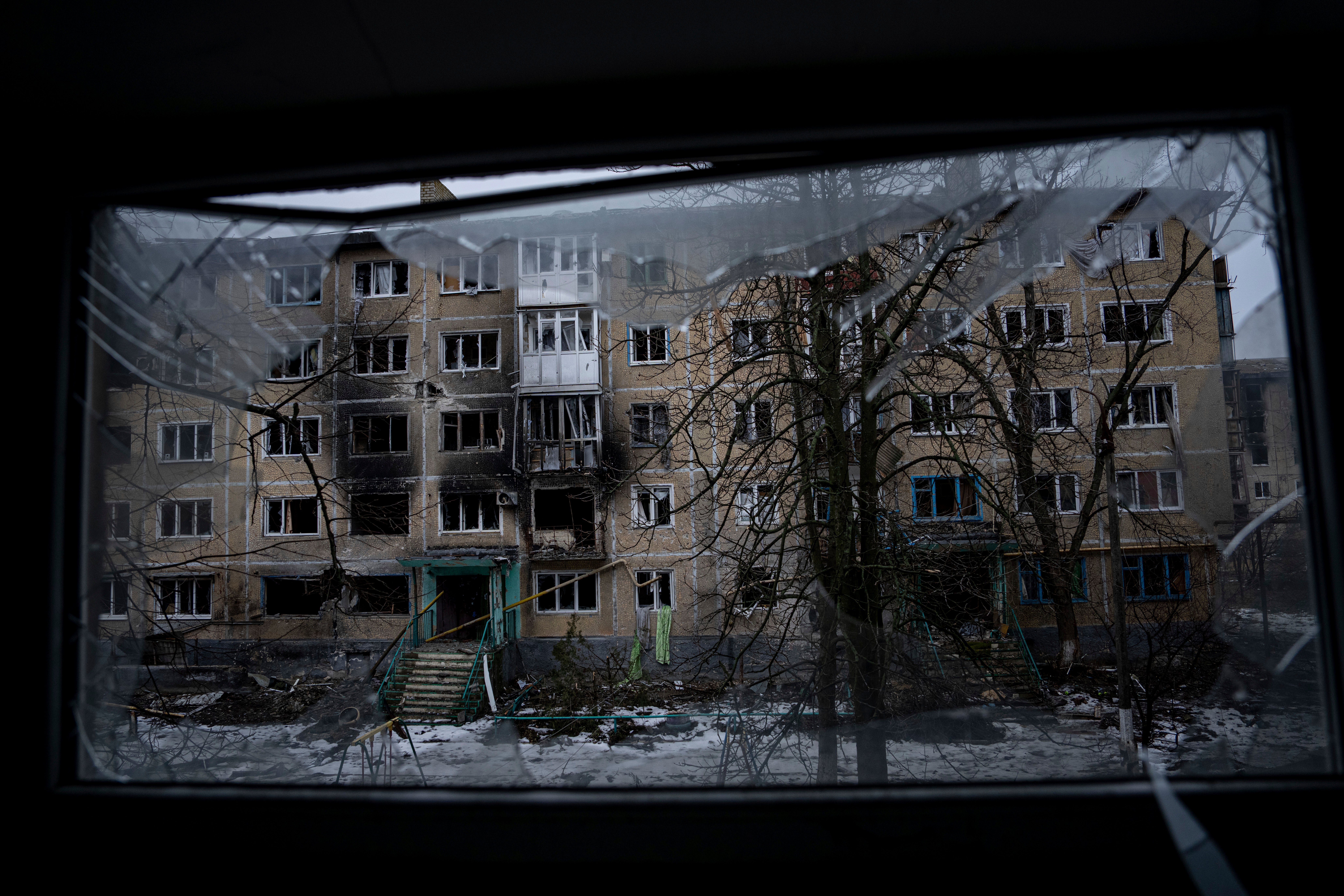
Port infrastructure in the southern Odesa region was targeted, with a grain facility and buildings at a border crossing near Romania damaged.
Thousands of people were also left without power in the northern Sumy region after an electrical substation was hit, officials said.
It comes after new Nato chief Mark Rutte vowed to strengthen Western support for war-ravaged Ukraine as he took charge of the alliance.
The Dutch former prime minister officially replaced Jens Stoltenberg on Tuesday as Nato secretary general after his predecessor spent a decade in the job.
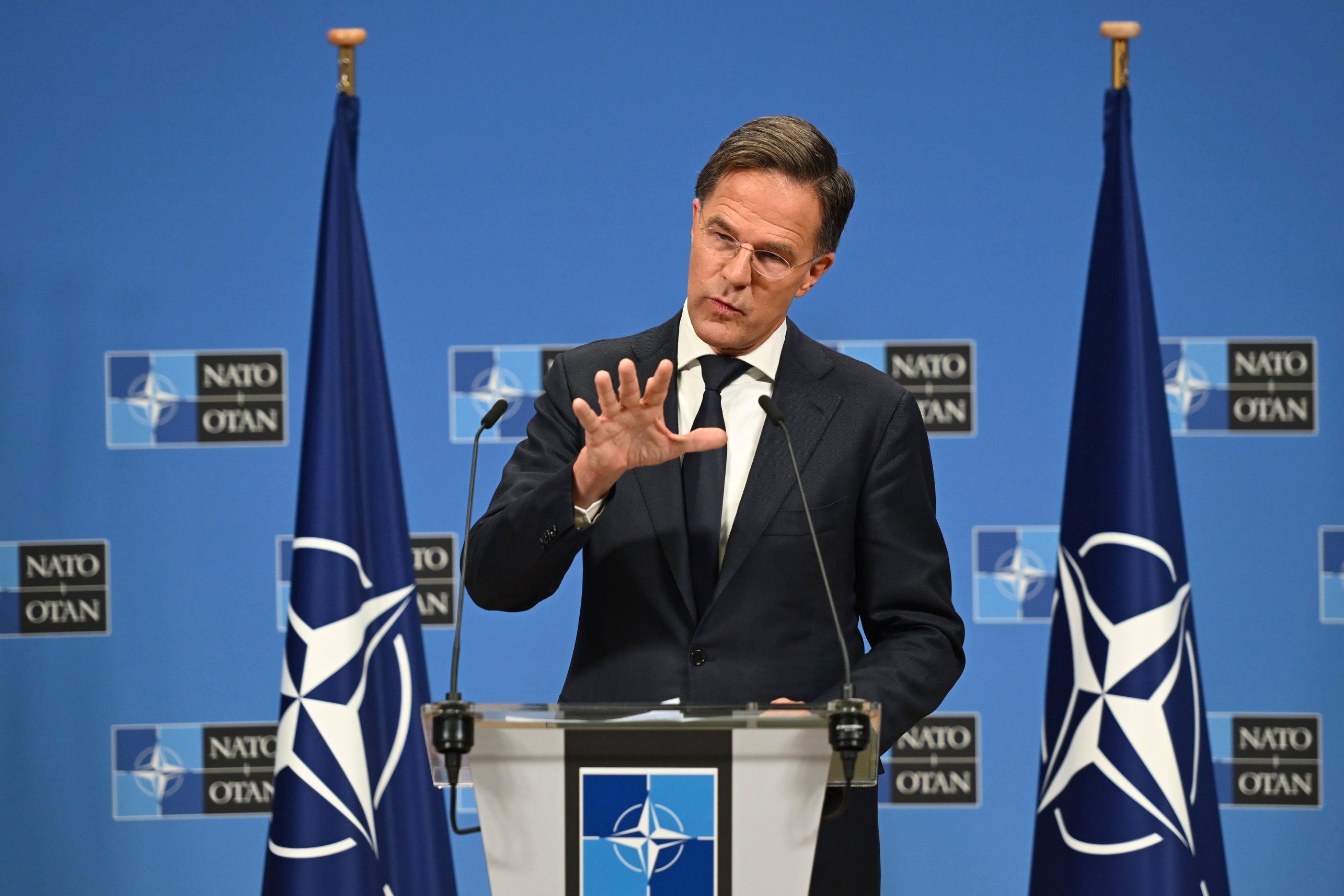
Mr Rutte’s appointment comes at an important time for Nato, with the US election just weeks away, he will soon be working with a new president.
The secretary general said during a press conference on Tuesday that he could work with either Donald Trump or Kamala Harris and appreciates that Ukraine will be his top priority.
“We have to make sure that Ukraine prevails as a sovereign, independent, democratic nation,” Mr Rutte said at Nato’s headquarters in Brussels, Belgium.
“The cost of supporting Ukraine is far, far lower than the cost we would face if we allow Putin to get his way,” Mr Rutte said, a few hours after Mr Stoltenberg handed the reins to him, along with a Viking gavel with which to chair future meetings.
Join our commenting forum
Join thought-provoking conversations, follow other Independent readers and see their replies
Comments
Bookmark popover
Removed from bookmarks